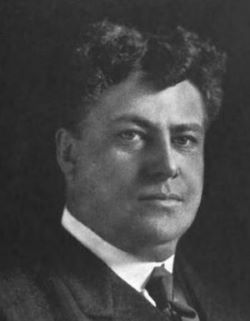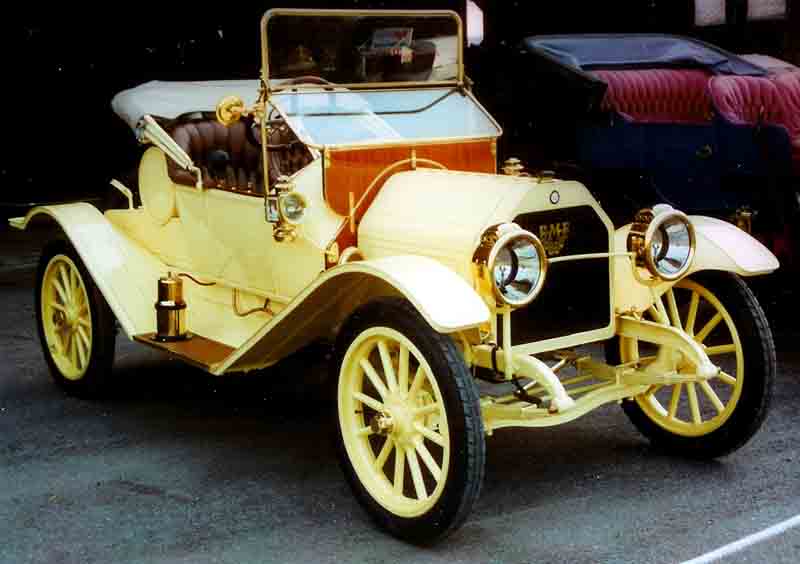 Walter E. Flanders (March 4, 1871 – June 18, 1923) was Ford Motor Company’s production manager. Flanders left Ford in 1908 to co-found the E-M-F Company, which was acquired by Studebaker in 1910. E-M-F was an manufacturer that produced automobiles from 1909 to 1912. The name E-M-F was gleaned from the initials of the three company founders: Barney Everitt, William Metzger (formerly of Cadillac), and Walter Flanders. Flanders died in Newport News, Virginia on June 18, 1923 as the result of complications following a car accident in which he’d been involved three days earlier. He was inducted into the Automotive Hall of Fame in 1994.
Walter E. Flanders (March 4, 1871 – June 18, 1923) was Ford Motor Company’s production manager. Flanders left Ford in 1908 to co-found the E-M-F Company, which was acquired by Studebaker in 1910. E-M-F was an manufacturer that produced automobiles from 1909 to 1912. The name E-M-F was gleaned from the initials of the three company founders: Barney Everitt, William Metzger (formerly of Cadillac), and Walter Flanders. Flanders died in Newport News, Virginia on June 18, 1923 as the result of complications following a car accident in which he’d been involved three days earlier. He was inducted into the Automotive Hall of Fame in 1994.
- Reorganized Ford’s production system in 1906 to produce 10,000 cars per year.
- Served as General Manager of the Everitt-Metzger-Flanders Company in 1908, where he suggested the first four-door auto body
- Became President of Maxwell Motor Company in 1913 and used innovative mass production techniques to achieve fifth place in auto production by 1915
Walter Flanders found a way to make machines work better. A knack for mechanics and a youthful apprenticeship in a sewing machine factory helped Flanders learn his way around machinery and prove himself useful to auto pioneer Henry Ford. To build an affordable car, Ford needed to increase production and reduce per unit costs. He hired Walter Flanders as production manager in 1906, promising him a $20,000 bonus if he could produce 10,000 cars a year. Flanders made better use of machines, and developed a more reliable and logical flow of parts, improving worker’s efficiency. Two days before the one-year deadline, the 10,000th car rolled out the door. When some Ford managers complained that he had spent too much money retooling, Flanders responded: “I did not come to save pennies, I came to make dollars.” He followed that philosophy successfully with three other automobile companies.


You must be logged in to post a comment.